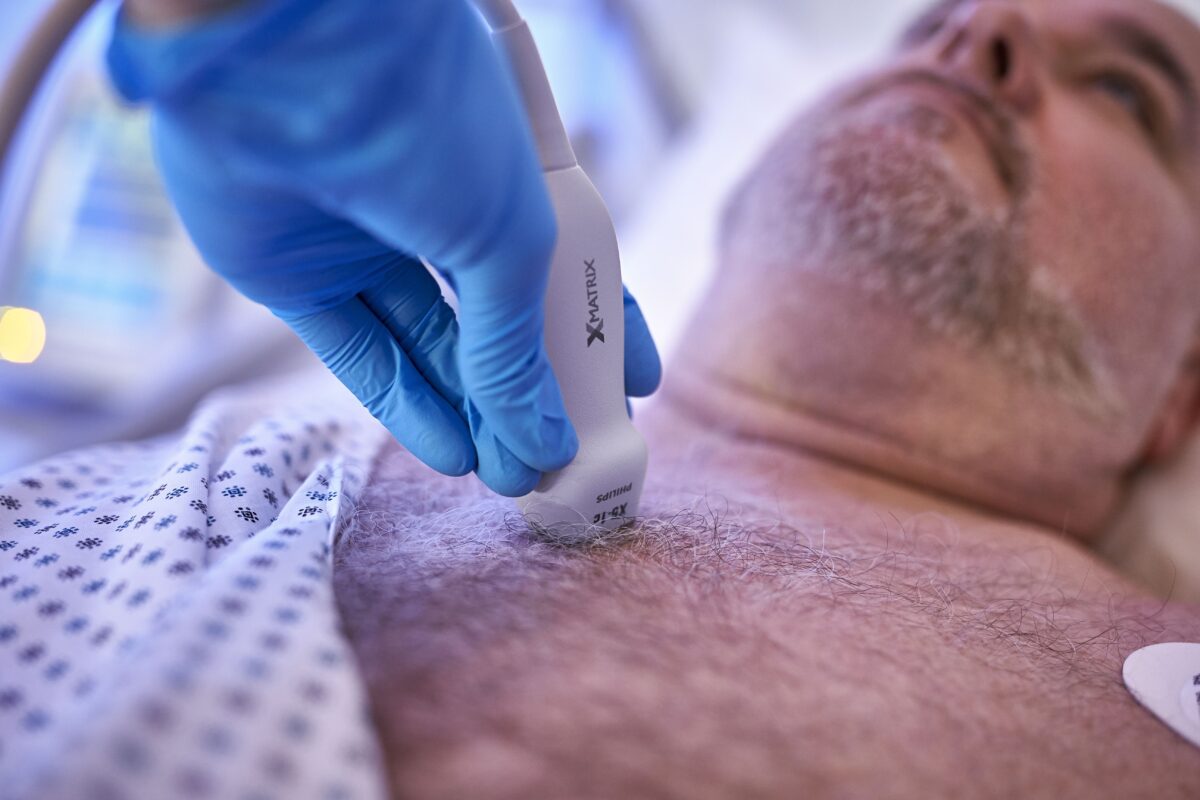Royal Philips (NYSE: PHG, AEX: PHIA), a global leader in health technology, today expanded its ultrasound portfolio with new robust imaging tools and features for Cardiology to increase diagnostic confidence and workflow efficiency. During its participation in the EuroEcho 2021 Virtual Congress, taking place December 9-11, Philips will showcase how its cardiac ultrasound solutions support cardiology patients and clinicians, from early detection, diagnosis and treatment, through ongoing assessment and long-term follow-up.
Integrated systems and informatics enable efficiency and diagnostic confidence
Philips brings together the latest release of the EPIQ CVx and Affiniti CVx ultrasound platforms, automated analysis, Collaboration Live remote diagnosis and Cardiovascular Workspace – IntelliSpace Cardiovascular – end-to-end workflow, for a fully integrated experience in echocardiography. Advanced technology is helping to foster first-time-right diagnosis and timely treatment. Philips nSIGHT Plus is a proprietary imaging architecture that touches all aspects of image acquisition and processing, creating images with optimal resolution down to the pixel level, in contrast with conventional systems that form the image line by line. In addition, the new Philips X5-1c transducer facilitates easier access to imaging windows between the ribs.
Clinician feedback showed that diagnostic confidence in 3D left ventricular function quantification was improved in 80% of patients undergoing transthoracic echo (TTE) exams using the X5-1c transducer [1]. Philips’ AI-enhanced Auto Measure application delivers fast and consistent measurements in half the time of manual methods. Using Auto Measure on Philips EPIQ CVx and Affiniti CVx ultrasound systems can reduce the time for standard 2D echo measurements by 51% [2]. Auto Measure AI and AutoStrain Left Atrium (LA) and Right Ventricle (RV) are now available across the Philips CVx portfolio.
Enabling remote access and limiting risk of COVID-19 exposure, Philips echocardiography suite also includes Collaboration Live, an integrated tele-ultrasound solution providing remote access to clinical staff in real-time during exams.
“With echocardiography the first imaging modality utilized for a greater volume of patients [3], clinicians are relying on ultrasound to provide care more than ever before,” said Jeff Cohen, General Manager of Ultrasound at Philips. “Cardiac imaging workflows need to be streamlined at every step to address the volume and complexity of cases. Philips echocardiography provides a connected ecosystem of integrated workflow solutions for cardiology. Combined with advanced diagnostic tools, our integrated solutions deliver clear insights on the patient’s condition quickly. These recent introductions also reinforce how our ultrasound capabilities bring strong clinical value to areas outside of echocardiography, including liver disease management, to help improve decision support and care at each step in the patient journey.”
“Imaging performance is the most important attribute to allow me to be confident in my diagnosis and treatment planning,” said Dr. Roberto Lang, Director, Noninvasive Cardiac Imaging Laboratory, University of Chicago. During the European Society of Cardiology virtual symposium, “Transthoracic echo like you’ve never seen before,” Dr. Lang explains how the new X5-1c echo transducer and AI-enhanced quantification are designed to improve clinical confidence in everyday patient care.
Delivering better heart care with greater efficiency and clinical confidence
Philips Ultrasound System – EPIQ CVx – and Ultrasound System – Affiniti CVx – provide a suite of features that can help reduce exam times, from the echo lab to the patient bedside, all while providing the confidence clinicians need to help enhance decision-making to inform the best treatment plan.
EuroEcho registrants are invited to join the Philips satellite symposium, “Using the latest innovations in Echocardiography to improve patient care,” on December 10, featuring Professors Denisa Muraru, Teresa Lopez Fernandez, and Manuel Barreiro Perez and hosted by Professor Bernard Cosyns.
